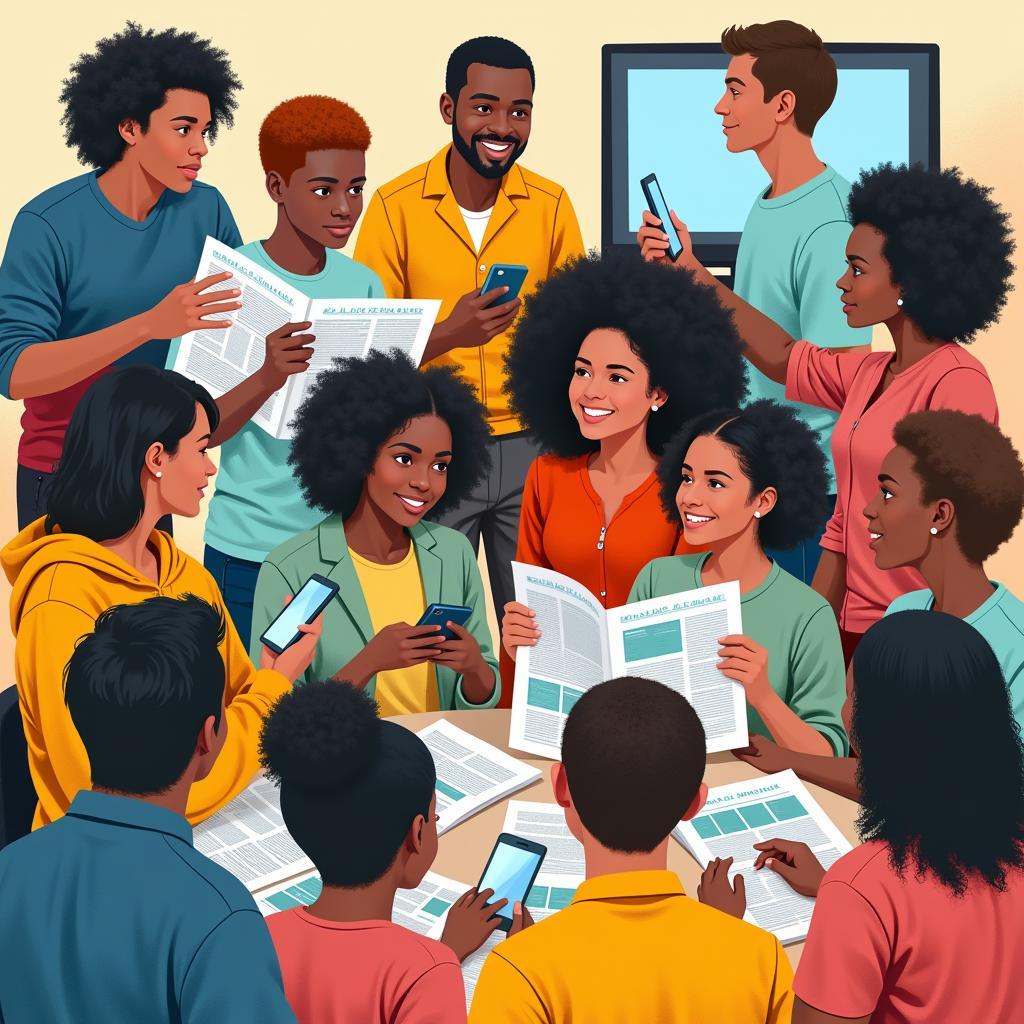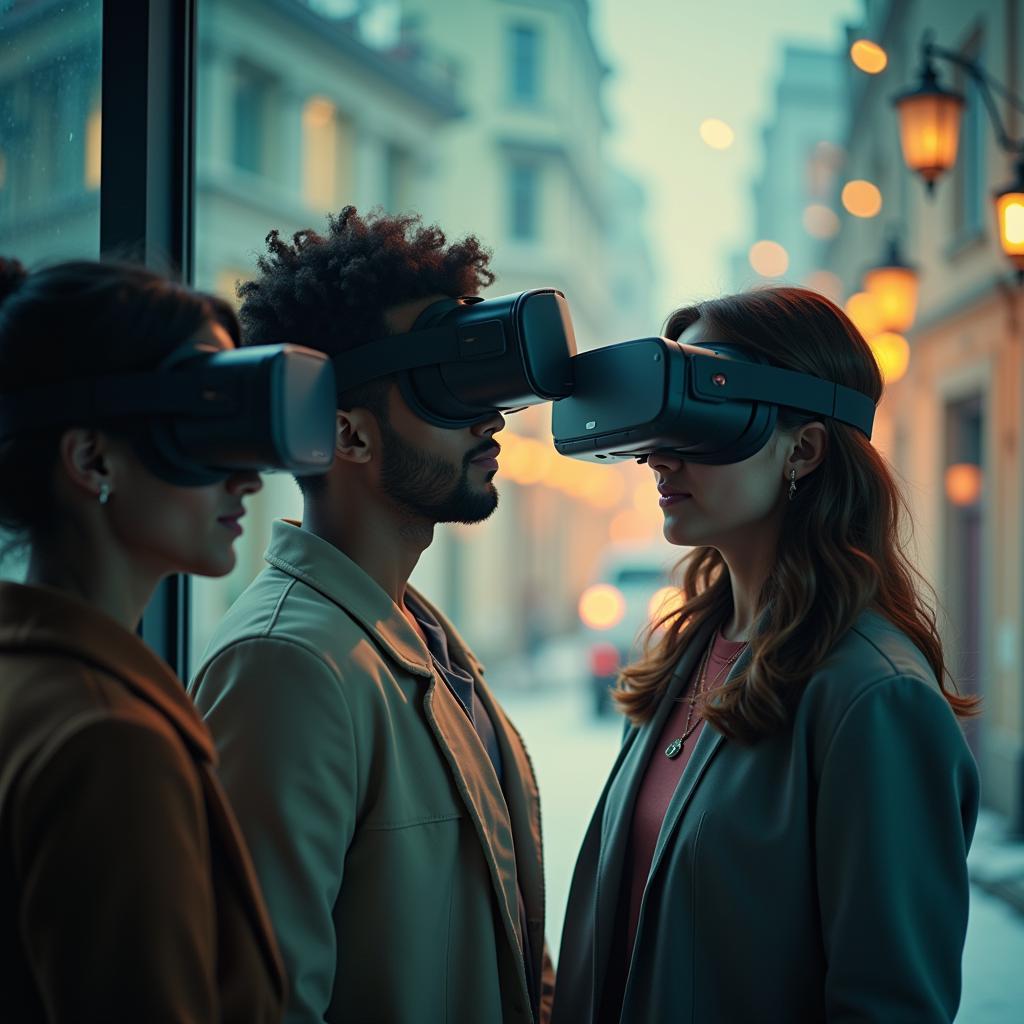Those Who Tell The Stories Rule Society. This age-old adage rings truer than ever in our digitally connected world. The narratives we consume and share shape our perceptions of reality, influence our decisions, and ultimately, mold the future of our societies. From news headlines to social media posts, the stories circulating around us hold immense power, capable of inspiring positive change or sowing discord and division. Understanding this power is crucial for fostering peace and promoting understanding in our global community. Let’s explore how storytelling shapes our world and how we can harness its power for good.
Narratives have always been central to human existence. For millennia, stories passed down through generations have shaped cultural identities, moral codes, and societal structures. Think about the impact of ancient myths, religious texts, and historical accounts. These stories, whether factual or fictional, have profoundly influenced the course of human history. Today, the digital age has amplified the reach and impact of storytelling, creating both exciting opportunities and unprecedented challenges. With the rise of social media and online platforms, anyone with an internet connection can become a storyteller, reaching a global audience in an instant. This democratization of storytelling has the potential to connect people across cultures and foster greater understanding. However, it also presents the risk of misinformation, manipulation, and the spread of harmful narratives.
The Power of Narratives in Shaping Public Opinion
How do stories hold such sway over our minds? One key factor is the emotional connection they forge. Stories, unlike dry facts or statistics, engage our emotions, making them more memorable and persuasive. They allow us to empathize with others, see the world from different perspectives, and understand complex issues in a more relatable way. This is why stories are such powerful tools for promoting social change. Think of the impact of narratives highlighting social injustices, environmental issues, or human rights violations. These stories can galvanize public support, mobilize action, and ultimately, lead to meaningful change. However, the same principles can be exploited to spread misinformation and propaganda. By manipulating emotions and exploiting cognitive biases, harmful narratives can gain traction, leading to prejudice, discrimination, and even violence. The ability to critically evaluate the stories we encounter is more important than ever.
 Storytelling's Impact on Public Opinion
Storytelling's Impact on Public Opinion
Harnessing the Power of Storytelling for Peace
So, how can we harness the power of storytelling for peace? The answer lies in promoting narratives that emphasize empathy, understanding, and cooperation. By sharing stories that celebrate our shared humanity, challenge stereotypes, and promote intercultural dialogue, we can build bridges between communities and foster a more peaceful world. Organizations like the Society For Peace play a vital role in this effort. Through initiatives like the the secret society of salzburg, they provide platforms for diverse voices to be heard and promote narratives of peace and reconciliation.
How Can You Contribute?
- Be a conscious consumer of information: Critically evaluate the stories you encounter online and offline. Consider the source, the message, and the potential impact of the narrative.
- Share stories that promote peace and understanding: Amplify voices that advocate for tolerance, empathy, and cooperation.
- Challenge harmful narratives: Speak out against misinformation, prejudice, and hate speech.
- Support organizations working for peace: Contribute to organizations like the Society For Peace that are dedicated to promoting peace through storytelling.
The Digital Landscape and the Future of Storytelling
The digital landscape is constantly evolving, and so is the art of storytelling. New technologies, such as virtual reality and augmented reality, offer exciting possibilities for immersive and interactive storytelling. These technologies have the potential to create even more powerful emotional connections and foster deeper understanding between people from different cultures. For instance, immersive narratives could allow individuals to experience life in another country, walk in the shoes of someone from a different background, or even witness historical events firsthand. By fostering empathy and challenging preconceived notions, these new forms of storytelling could be powerful tools for promoting peace and understanding.
 Digital Storytelling: The Future of Peace
Digital Storytelling: The Future of Peace
“Storytelling is not just about entertainment,” says Dr. Anya Sharma, a renowned anthropologist specializing in cross-cultural communication. “It’s a fundamental way we make sense of the world and connect with each other. By harnessing the power of narrative, we can build a more just and peaceful future.”
the mysterious benedict society books in order and similar sources can help demonstrate the impact of storytelling on shaping individuals’ worldviews.
“The stories we tell ourselves and each other shape our reality,” adds Dr. David Chen, a leading expert in peace and conflict resolution. “By promoting narratives of hope and understanding, we can overcome division and build a more inclusive world.”
The salons mentioned in salon society suites might serve as a physical space for such inter-cultural conversations.
In conclusion, those who tell the stories truly do rule society. By understanding the power of narrative and by actively promoting stories that foster empathy, understanding, and cooperation, we can create a more peaceful and interconnected world. We encourage you to become a conscious storyteller and to use your voice to promote narratives of hope and understanding. Let’s work together to build a future where stories unite us rather than divide us.
FAQ
- How can storytelling be used to promote peace?
- What are some examples of harmful narratives?
- How can we combat misinformation and propaganda?
- What role does technology play in the future of storytelling?
- How can I become a more conscious consumer of information?
- What are some ways to support organizations working for peace?
- What is the role of personal stories in promoting intercultural understanding?
Need more inspiration? Explore the power of storytelling in promoting compassion with society of the snow english dub or explore tales of empowerment and change in the benevolent society of ill-mannered ladies.
For further information or assistance, please contact us:
Phone: 02043854663
Email: [email protected]
Address: Khu 34, Bắc Giang, 260000, Vietnam.
We have a 24/7 customer support team.